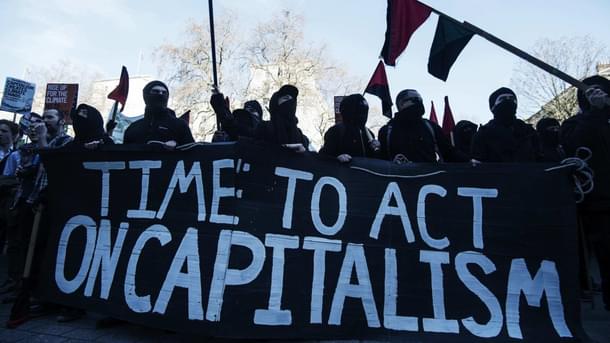Economy
Why Do Millennials Have Such A Problem With Capitalism?
Swarajya Staff
Oct 27, 2016, 10:17 AM | Updated 10:17 AM IST
Save & read from anywhere!
Bookmark stories for easy access on any device or the Swarajya app.


What Millennials Reject Is Mutant Capitalism
Itâs not exactly news that capitalism has an image problem. Say the word âcapitalistâ and the image that comes to mind is of a rapacious, self-interested robber baron â less Steve Jobs or Warren Buffett, more Charles Montgomery Burns.
Among young people, the problem is even more severe. For the generation who came of age during the financial crisis, argues George Koopman of the Mercatus Centre in the Wall Street Journal:
ââ¦capitalism isnât about free enterprise, nor is it about the startups and innovation. When they hear the term, millennials think about Wall Street bailouts, corporate greed, political scandals and tax codes riddled with loopholes for the wealthy and connected.â
This is what his article calls âmutant capitalismâ â and itâs scarring the reputation of the good kind. Koopman cites a Harvard Institute of Politics survey showing that about a third of Americans aged 18-29 support socialism, while not even half back capitalism.
In fact, that understates the scale of the problem. Research by YouGov has shown that socialism is more popular than capitalism among young people in Britain and America alike. (Though Americans seem to come to their senses in their twenties, unlike the Brits.)

In fact, across Britons as a whole, YouGovâs survey showed more people identifying as socialists than capitalists, by 19 per cent to 16 per cent (48 per cent said âneitherâ; the remaining 17 per cent were âdonât knowâ).
So is support for capitalism in jeopardy? Koopman quotes a memo by the Republican pollster Frank Luntz arguing that âthe hostility of young Americans to the underpinnings of the American economy and the American government ought to frighten every business and political leaderâ.
Yet he also points that people are still able to make a difference between âcapitalismâ (bad) and the free market (good). He cites a 2015 Reason-Rupe poll showing that those of college age in the US much prefer a âfree-market systemâ (72 per cent) to a âgovernment-managed economyâ (49 per cent).
In fact, this isnât a distinctly American phenomenon. Pewâs surveys of global opinion have shown that the free market is still overwhelmingly preferred as a means of organizing the economy in the US and most other developed nations â with a few striking exceptions such as Greece, Japan, Spain and increasingly Italy:

And encouragingly, the picture is even rosier in the rest of the world â where theyâve seen far more of the benefits. China and India are both keener on free markets than America â Vietnam, while nominally Communist, is positively fanatical about them. Even Venezuela, despite the best efforts of Hugo Chavez and his successors (or perhaps because of them), remains in the free-market camp:

(Source: Pew Research Centre, Global Attitudes Survey 2014)
Koopman argues that the lesson of such findings is that we need to differentiate âgenuine capitalismâ from âthe mutant system that has dominated economic policy over the last decadeâ â and remind people of the benefits of the former before it becomes contaminated by the reputation of the latter.
But thereâs another point to make. Even at a time when the world seems to be turning inwards â when politicians on both sides of the Atlantic are competing to sound the most hostile towards free trade, and when angry populism is on the electoral march â a substantial majority of the global population, of whatever age group, still recognizes the benefits that free markets can deliver.
This state of affairs is not, of course, guaranteed. The way that the word âcapitalismâ has become tarnished by association with cartels, cronyism and bubble-era greed makes it harder to make the case for liberal economics more widely. And countries that lose confidence in the free market risk falling into a self-sustaining trap, taking actions to regulate the economy which end up harming growth, prompting further disillusionment.
But still: young people today may not wear T-shirts saying âCapitalist And Proudâ, or pin up posters of Hayek and Friedman on their walls. But nor are they all paid-up acolytes of Bernie Sanders or Jeremy Corbyn. Mostly, they just want what the rest of us want â namely decent jobs, decent homes, and an economy that works to deliver them.
Republished from CapX

Robert Colvile
Robert Colvile is an editor of CapX
This article was originally published on FEE.org. Read the original article.




